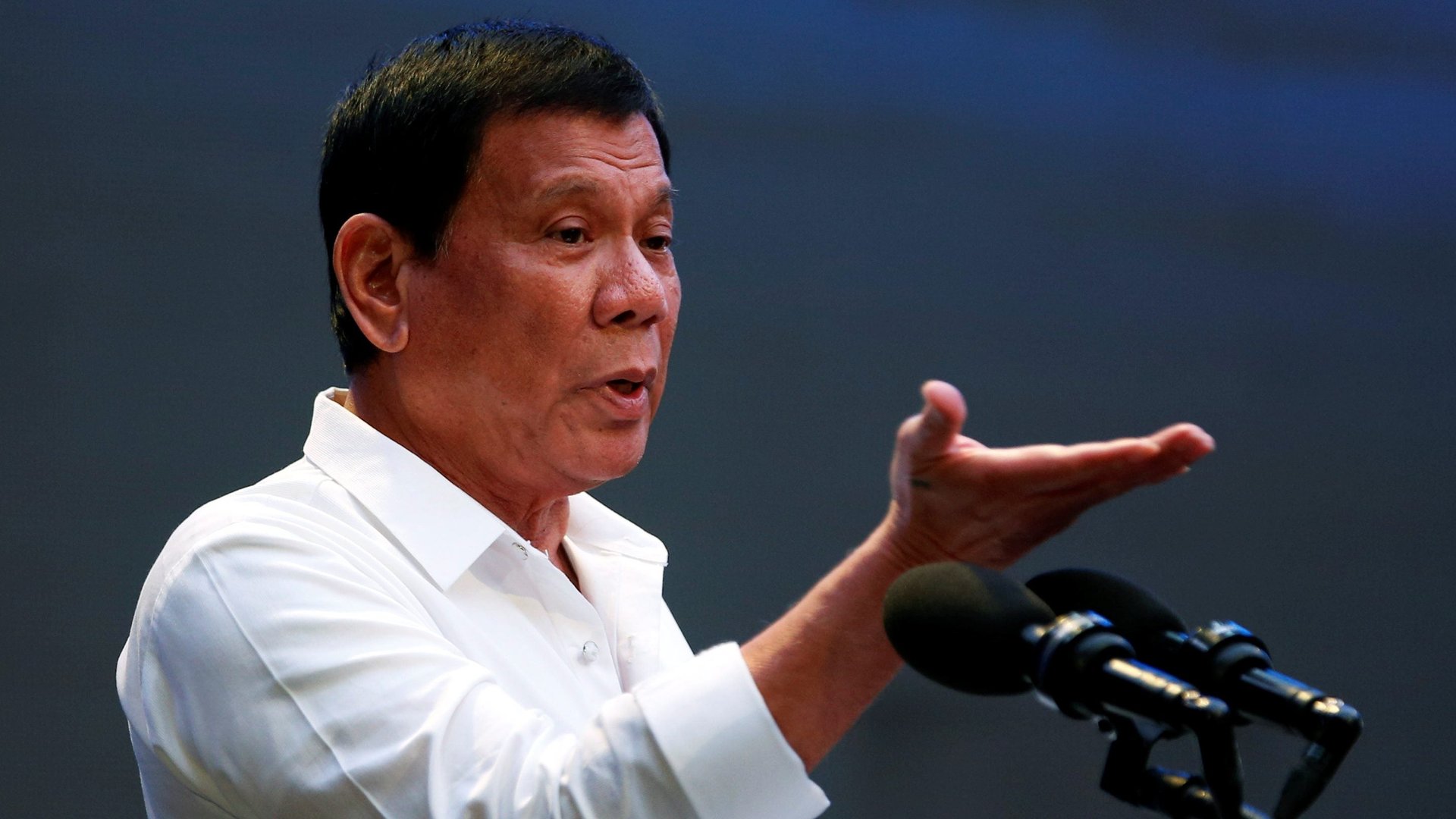“God will weep”: Rodrigo Duterte’s dark, twisted relationship with faith and religion
Philippine president Rodrigo Duterte has said he believes that God was behind his improbable rise to president, a position he assumed in late June. “I tend to believe now that it was God who gave it to me,” he told a crowd in the Batanes province on Oct. 14.


Philippine president Rodrigo Duterte has said he believes that God was behind his improbable rise to president, a position he assumed in late June. “I tend to believe now that it was God who gave it to me,” he told a crowd in the Batanes province on Oct. 14.
Duterte has shown he has little respect for the law with his dubious war on drugs, which encourages the killing of suspected drug criminals without a fair trial. He has also shown a complete disregard for human rights—and fury toward anyone pointing it out.
But his relationship with God appears to be more complicated.
Like over 80% of Filipinos, Duterte was raised Catholic. Yet his statements in the past, and during his first few months in office, reveal an anger, disappointment, and bitterness towards God and the Catholic Church that even seems to fuel some of his more extreme policies. At the same time, he refers to his faith constantly, and is still demanding signs from God above.
Duterte says he often doubts the presence of God. Not only that, he says more of his countrymen do as well, which is why he wants his nation’s lawmakers to help him revive the death penalty, officially abolished 10 years ago under pressure from the Roman Catholic Church. “In this age a lot are questioning [God] now,” he said on Sept. 26. That, he argued, leads to a lack of fear and therefore a lack of respect for the law.
Duterte has claimed that as a boy he was abused by a Catholic priest, even naming the priest in December 2015. The experience shaped the kind of leader he became, he said in an Al Jazeera interview released this week. ”Yes, to a large extent actually… it is what you get on the way that shapes your character, and even your politics. It sort of blends into something which, it can be said, forms your own values in life.”
He does not regularly attend church, and he considered the presidential election in May a battle between him and the church, that he won. On May 1 the Catholic Bishops’ Conference of the Philippines said Duterte was a ”morally reprehensible” candidate who has shown “scant regard” for the teachings of the Church and the rights of others.
“They campaigned against me,” he said on May 22. “Fine. I said, let this election be a referendum between me and the Catholic Church.”
“Where is” God, he asked on Sept. 26, when a baby “is taken from the mother’s arms brought under a jeep and raped and killed,” referring to atrocities by ISIL. “I believe in God but that is my perpetual question to him,” he continued. “Where were you when we needed you?”
Duterte’s questioning of God is not new. When super typhoon Haiyan (known locally as Yolanda) flattened Philippine towns, especially Tacloban City, when he was mayor of Davao City in 2013, he said “God must have been somewhere else. Or that he forgot that there is a planet called Earth.”
His critics accuse him of playing God himself. One of Duterte’s boldest domestic critics is senator Leila De Lima, especially regarding his war on drugs. Earlier this month she said:
“Who died and made him king? Well, so far about 3,400 people have died. Without a trial. Again, many under suspicious, if not outright murderous, circumstances. Is that the answer? He thinks and acts like he’s the king—no, a god—therefore, he is? [Filipinos should supposedly] stop thinking for ourselves, be silent, and meekly follow him… to the precipice and beyond… because he is omniscient and all-seeing, and we are but ignorant sheep that need his guidance to be divided and led to either salvation or slaughter.”
During his campaign, Duterte boasted the number of extrajudicial killings would skyrocket if he expanded his war on drugs from just Davao City to the entire nation.
“God will weep,” he said, “if I become president.”